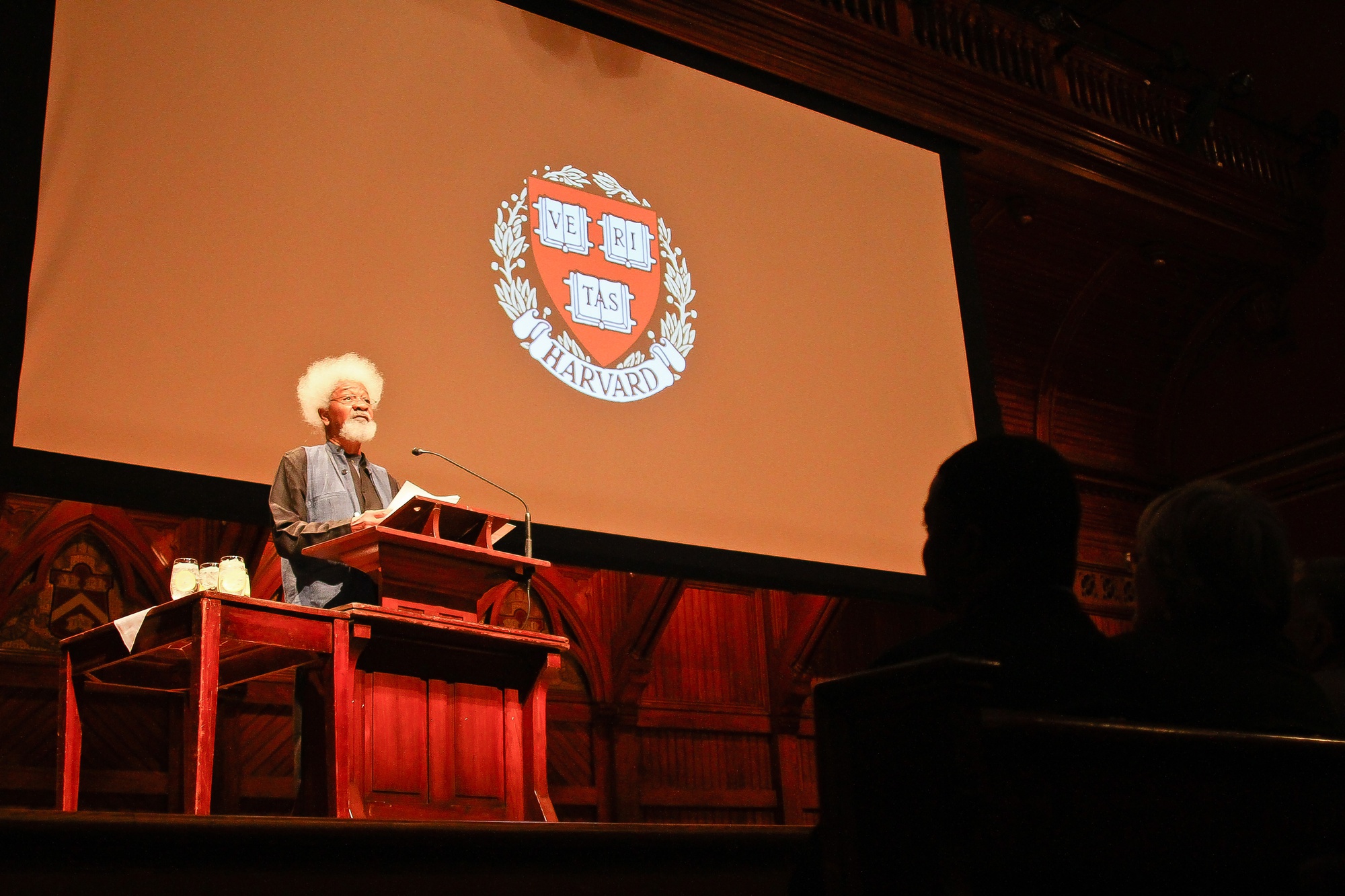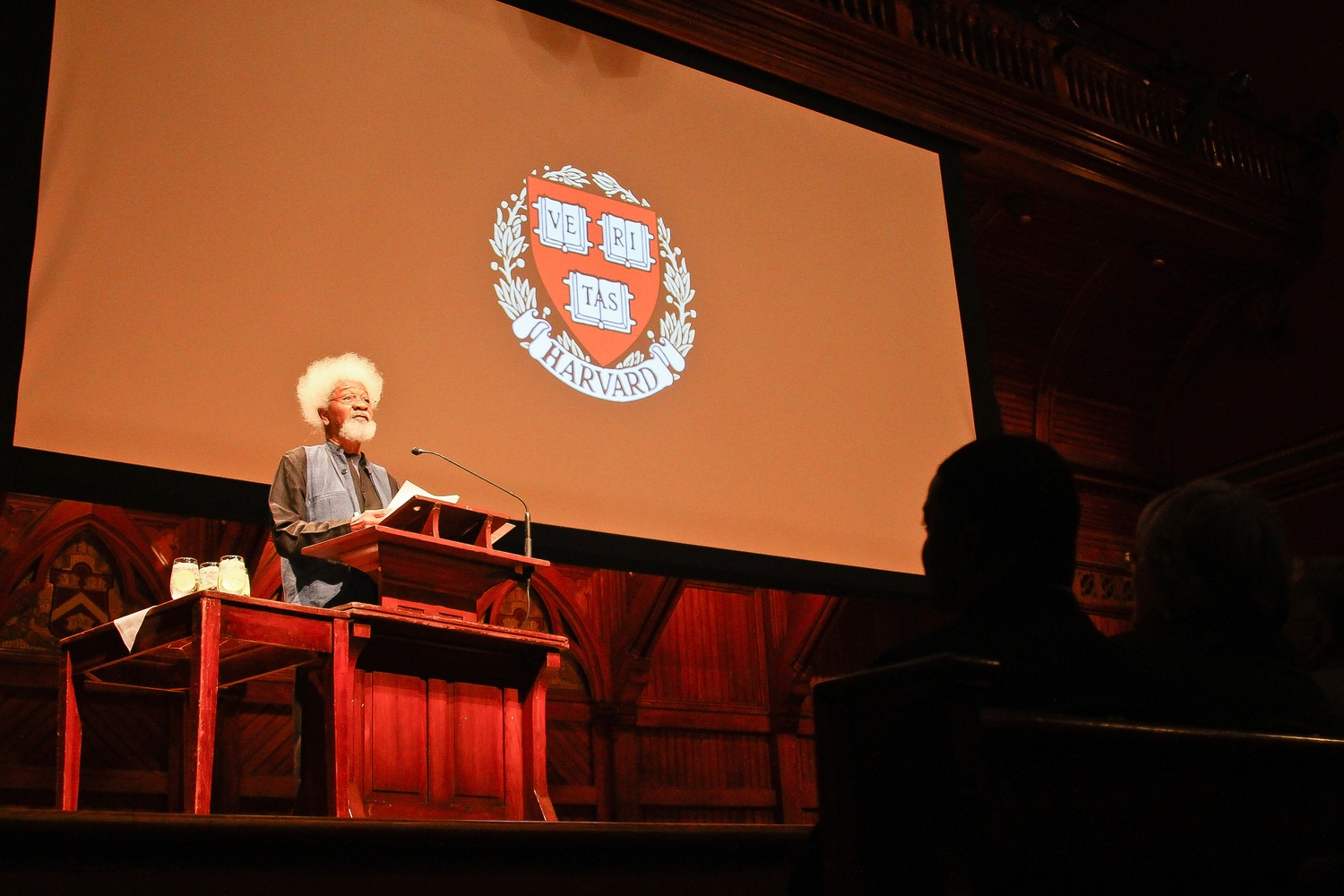
News
Summers Will Not Finish Semester of Teaching as Harvard Investigates Epstein Ties

News
Harvard College Students Report Favoring Divestment from Israel in HUA Survey

News
‘He Should Resign’: Harvard Undergrads Take Hard Line Against Summers Over Epstein Scandal

News
Harvard To Launch New Investigation Into Epstein’s Ties to Summers, Other University Affiliates

News
Harvard Students To Vote on Divestment From Israel in Inaugural HUA Election Survey
Committee on African Studies Commemorates Mandela Three Months After Death


Three months after the globally televised memorial for Nelson Mandela, the Harvard University Committee on African Studies commemorated the South African leader’s legacy at Sanders Theatre on Tuesday evening.
Titled “Meanings of Mandela,” the event featured speeches, readings from Mandela’s speeches, and a panel discussion on the Mandela’s life. Pusey Minister in Memorial Church and Plummer Professor of Christian Morals Jonathan L. Walton opened with a prayer, while University President Drew G. Faust introduced the prominent speakers of the night.
Professor Henry Louis Gates, Jr., director of the Hutchins Center for African and African American Research, introduced Wole Soyinka, Nobel laureate and fellow at the Hutchins Center.
Like Mandela, Soyinka is remembered for time spent in jail, where Gates said Soyinka developed into “a thinker and writer.” Soyinka honored Mandela for his nonviolent political resistance through a reading of Soyinka's piece, “The Dance Is Not Over.”
“Mandela was a warrior leader but he was averse to ‘bleedership,’” Soyinka said. “He proved it in South Africa.”
Professor Lawrence D. Bobo, W. E. B. DuBois professor of the social sciences and chair of the department of African and African American Studies, recited a passage from Mandela’s autobiography, “Long Walk to Freedom.” Maria L. Makhabane, a student at Harvard Business School, proceeded to read an excerpt from Mandela’s Nobel Peace Prize acceptance speech from 1993.
The event also featured a panel, including former chief justice of the Massachusetts Supreme Judicial Court Margaret H. Marshall, who is a native South Africa, ViceChancellor and Principal of the University of Witwatersrand in South Africa Adam Habib, and Achille Mbembe, research professor in History and Politics at the University of Witwatersrand.
“I hope to, first, commemorate this man, and second, lay the foundation of the idea that you can’t have a democracy without rule of law,” Marshall said.
The panelists agreed that there will never be a peacemaker as great as Mandela.
“If the 20th century was the struggle of equality, the 21st century will be the struggle against inequality and transcending it,” Habib said.
The event concluded with the Kuumba Singers of Harvard College performing the South African national anthem.
Want to keep up with breaking news? Subscribe to our email newsletter.
